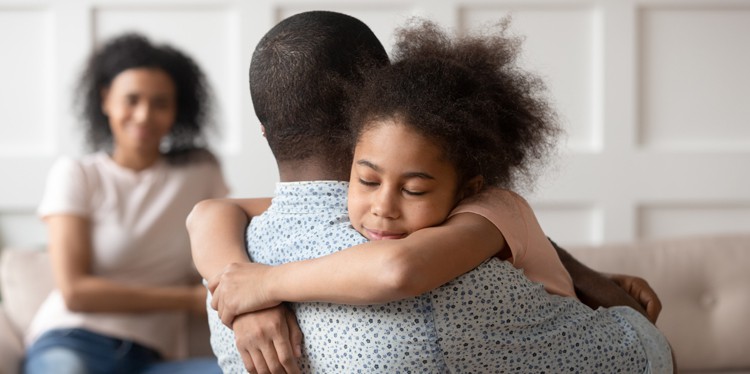Parents, let’s unite and talk to our kids about bullying

It can be easy to think that bullying is an issue of the past. In many ways, kids are much more accepting these days than in previous generations. Unfortunately, however, one in five kids is the victim of bullying. October is National Bullying Prevention Month, and I want to encourage you to talk with your kids about this important issue.
What is bullying?
Almost everyone remembers either being the victim of bullying or having friends who were. You get picked on repeatedly because of some perceived difference by someone with more power than you. They might be bigger, more popular, or older. At best it can ruin your day, at worst you might actually be physically hurt. None of it should happen. It’s our job as parents to help our kids manage this problem, and to make the world safer for all.
Why do we care?
Some people grew up being told that bullying was “part of childhood.” Years of research show us that over time bullying leads to increased rates of anxiety, depression, and even suicide. It can cause children to stop going to school, fall behind on schoolwork, or isolate themselves. We also know that children who become bullies have their own serious social and emotional issues.
What can I do?
The most important thing you can do as a parent is to provide a loving home where your child knows they have value and your total support. This will allow them to develop self-esteem that will trump any negativity they receive from a bully. It will also ensure they feel comfortable talking with you if something is going on in their life. That being said, it is important that you check in with your kids regularly about how things are going at school. Some children feel isolated or like “there’s nothing anyone can do” about the problem of bullying. This couldn’t be farther from the truth, but to help we have to know what’s going on.
Try these conversation starters:
- “Do you feel safe at school?”
- “If someone was being picked on, what would you do?
- “Are other kids kind to you online?”
- “Have people ever posted things online about you that made you feel bad?”
What if my child is being bullied?
We wish we could protect our children from all harm, but we have to let them lead their own independent lives. It is important to help your child develop their own strong sense of self-worth. This will ensure that when someone does pick on them, they are able to manage it. It’s also important that you work with your child to practice what to do if they are bullied so that they aren’t caught by surprise if it happens in real life. I like the analogy, “Walk, Talk, Squawk”:
- Walk: If you’re being bullied, walk away to an area where there are adults.
- Talk: Look the bully in the eye, tell them “Knock it off. You can’t talk to me like that”
- Squawk: Tell an adult what’s going on. It is the school’s legal responsibility to provide a safe learning environment for all their students. By letting a teacher or parent know what’s going on, the school can work to stop the bullying that is happening.
It is also important to talk to your child about what to do if they see someone else being bullied. They can make a big difference by standing up for the victim. This is also worth practicing.
What if it’s happening online?
Parents should be monitoring all social media activity their children are participating in. If a child is the victim of online attacks, it is important that they take “screenshots” of what was posted. This can be used as evidence when discussing the incident with the school.
How can I prevent my child from being a bully?
It is important to set expectations for how you want your children to treat others. At my house this means treating everyone with respect. We can model this behavior as parents, and we remind our children of it often. It is also important that parents model good methods of dealing with differences, disagreements, and anger at home. This doesn’t mean denying your feelings if you’re upset or mad, but instead modeling healthy ways to manage those feelings. For many of us adults this is not something we were taught! But it is worth the effort to learn more positive ways to deal with our own anger. (Check out “Everybody Gets Mad” below for some starter ideas.)

What’s up with October?
October 21st is “Unity Day,” and people across the country will be wearing orange to make a stand against bullying in all forms. If you’d like to learn more about participating, click on the links below:
- Pacer’s National Bullying Prevention Center, Learn more about Unity Day
- American Academy of Pediatrics, Everybody Gets Mad
- Bullying Prevention in Minneapolis Schools
About the author
 Dr. Chris Maierhofer is a pediatrician at the Clinic and Specialty Center. He trained at Upstate University Hospital in Syracuse New York, but was born in Minneapolis and is happy to have returned to the Midwest. He sees patients from birth to college-aged. He sees and provides gender-affirming care for LGBT patients as well. He is accepting new patients to his practice.
Dr. Chris Maierhofer is a pediatrician at the Clinic and Specialty Center. He trained at Upstate University Hospital in Syracuse New York, but was born in Minneapolis and is happy to have returned to the Midwest. He sees patients from birth to college-aged. He sees and provides gender-affirming care for LGBT patients as well. He is accepting new patients to his practice.
1 Comments
Leave a Comment
You must be logged in to post a comment.


As a retired high school counselor, I believe there will always be bullies, and there will always be victims. Keeping open communication is one way to attenuate the situation. Victims are often reluctant to admit they’re victims. We need to provide a safe place for them to do so. Even then, the victims risk retaliation. Bullies are not fond of being called out.